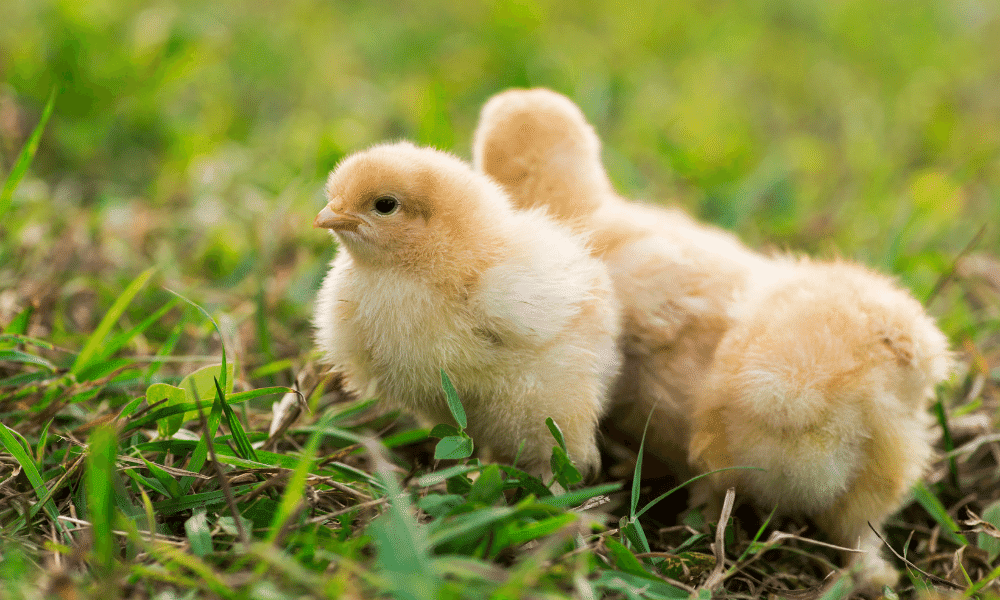Handling Agressive Cockerels
Why do cockerels attack?
During their first spring season, cockerels (roosters under one year of age) undergo a surge in hormones that can cause them to exhibit aggressive behavior. This heightened hormonal state can lead to overprotectiveness, a desire to fight anything that moves, and an overwhelming urge to mate with their hens. If a rooster perceives you as a safety threat or an interflock rival, he may attack.
Spring is a time of discovery for these young roosters as they navigate their place in the world, both among other chickens and with their human caretakers. It is important to understand their behavior during this time and take necessary precautions to ensure safety for all involved.
It's not unusual for roosters to mistake harmless actions like picking up one of their hens, as a danger. If a hen begins to squawk in distress, a rooster's protective instincts can be triggered, causing them to see you as a predator. Good news: this conduct indicates that your rooster has the potential to be a dependable flock protector. To ensure that the rooster perceives you as a non-threatening presence, it's key to establish trust and assert yourself as the alpha.
Sometimes, without any clear reason, a rooster may attack you while you're feeding the flock or engaging in other activities. This is because the rooster views you as a rival and is attempting to assert dominance over you. In the fall, a rooster may appear very friendly and inquisitive, but this familiarity may lead him to believe that he can dominate you in the spring. Without taking action, the rooster might continue this unwanted behavior.
What are some signs of an aggressive cockerel?
You may notice an overprotective cockerel side eyeing and following you, often positioning himself between you and his flock. He may look for an opportunity to attack you, often from the side or when you turn and walk away.
If he’s particularly cocky he’ll lower his head, raise his hackle feathers and dance around you. He’ll survey you intensely with one eye, pick up small debris from the ground and cluck at you, sizing you up before he strikes. This can be a sign he views you as a rival, which is one of the most difficult attitudes to break. Now is the time to establish your authority while your cockerel is young and impressionable. An older, aggressive rooster set in his violent ways can be much more difficult to tame.
How should I respond to a cockerel attack?
One of the worst things you can do when a cockerel attacks is to strike back. This only solidifies in the cockerel’s mind that you are a threat or rival and it’s likely one or both of you will get hurt.
Another thing you should avoid when possible: running. Roosters sensing your fear could make the situation even more difficult. As soon as the cockerel feels he can boss you around, it will be much harder to change that behavior.
Some things that can help when handling an aggressive rooster:
Grab him and get control of his feet and wings. Place him on the ground on his back and hold his legs so he can’t get away. This helps the rooster relax while enforcing your physical dominance over him. You know the rooster is completely relaxed when you are able to step away and he continues lying on the ground.
Put on a pair of safety glasses and pick up your rooster. Hold him so he faces you and stare into his eyes. Maintain locked eye contact until he turns away. Winning the stare down can help solidify your place as the alpha.
Putting an aggressive cockerel under a laundry basket or in a cage puts him on a timeout that can help him settle down.
What should I do with an aggressive rooster?
If the cockerel does not respond well to these techniques, then what do you do with him? This question has troubled many people and unfortunately there’s no easy answer.
A few options…
Isolate the rooster while you continue to work with him. Some roosters will naturally calm down with age. The separation protects your other flock members or flock caretakers.
Humanely processing a rooster (or giving him away to someone who will) can provide sustinence to humans or animals. Roobeez has members who hold Rooster Roundup events for people looking for help.
Rehome the rooster to someone who is experienced with this type of behavior and is aware of potential dangers.
Do you have experience with aggressive roosters? Any tips to share? Let us know in the comments!
Disclaimer: This post on handling aggressive cockerels is for informational purposes only. We are not liable for any harm or damage that may result from using the tips shared here. By reading and applying this information, you accept full responsibility for your actions.
Marketplace
You might also be interested in...

Shop for chickens, livestock or other farm goods

About Farm Expo Events

Sell Your Chicks and Eggs
The fun doesn’t have to end here.
Become a free Roobeez member for unlimited access to these features + more!
The Learning Library 📚
Get your hands on informational guides and expert advice on topics like livestock, homesteading, farming, small business, and more.
The Online Marketplace 🛒
Shop directly from your local small farms and artisans. As a seller, enjoy free advertisement and a dedicated storefront.
Exclusive Events 🎟️
Find local farm & homestead-related events. Experience the joy of local community connection!
You might also be interested in…














Discover farmers markets near you with Roobeez! Explore local events, find seasonal and weekly markets, and shop fresh produce and handmade goods on our marketplace. Contribute to our growing directory by adding your favorite markets and community events. Supporting local has never been easier!